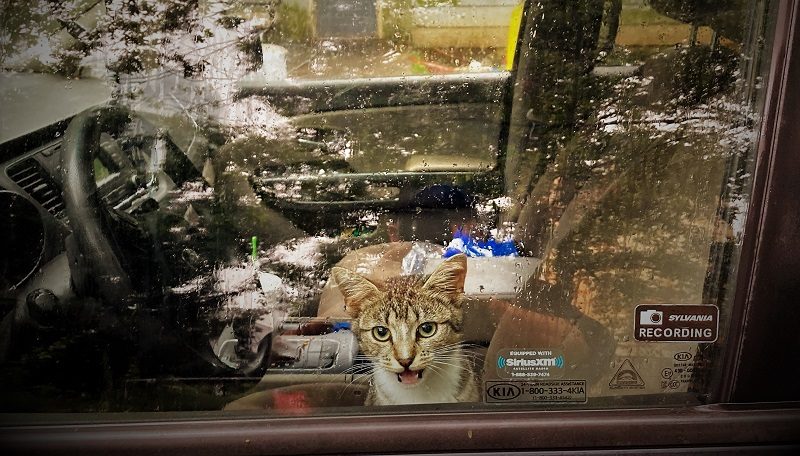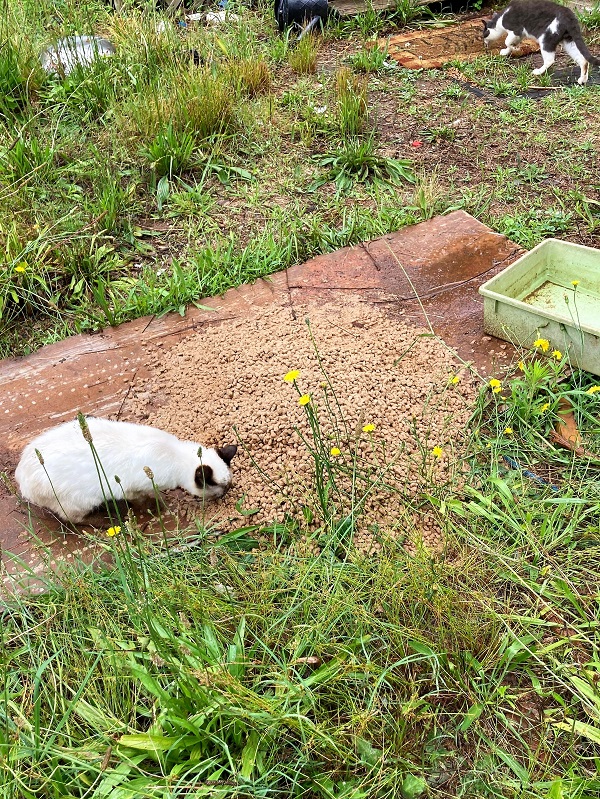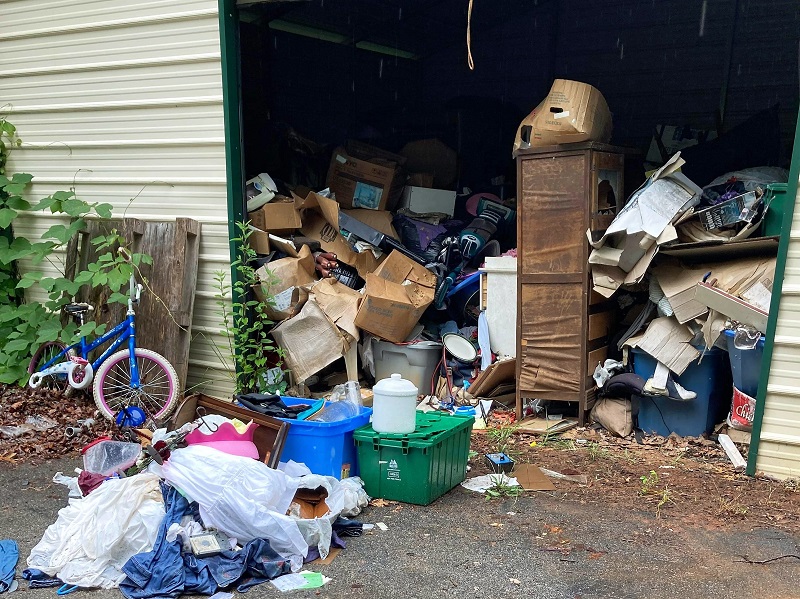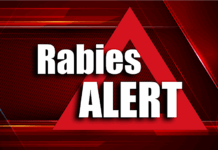
The potential public health threat posed by a colony of feral cats found near Demorest has forced animal control officials to make a heartbreaking decision.
The approximately 30 cats and kittens were unvaccinated and had been exposed to rabies, says Habersham County Animal Care and Control (HCACC) Director Madi Nix. As a result, animal control officers are now having to trap the animals and humanely euthanize them.
“Despite our love for animals, public safety comes first and foremost,” says a clearly distraught Nix. “Sometimes, doing the ‘right’ thing can feel so wrong.”
It began with a 911 call
A 911 caller first alerted authorities to the problem on Sunday, June 18. They called to report a cat that was “acting aggressively” in the area of Cannon Bridge Road.

The following day, animal control officers contacted the ‘owner,’ who told them the cat was a stray. They said they were feeding the cat and that it had bitten and scratched them two days earlier.
When animal control officers arrived to take possession of the animal, the owner said they didn’t know where it was. The officers later discovered the cat’s body on the property.
While investigating, HCACC officers say they saw an abundance of feeding stations. That’s when they discovered the colony of unaltered, unvaccinated cats. Nix says the owner confirmed the cats were being fed on the property and had been unmanaged for over two years.
An ‘extremely difficult day’
The Habersham Environmental Health Office submitted the dead cat to the CDC State Laboratory for testing. On Wednesday afternoon, June 21, the results came back positive for rabies. Soon after, HCACC began capturing and euthanizing all unvaccinated free-roaming cats on the property, including kittens.
As of June 22, Nix says a total of 18 cats – including the one that tested positive for rabies – had been removed and euthanized. Animal control officers have found more cats in various buildings and inside vehicles with closed windows. They’re still trying to catch them.
“I’d be lying if I said I didn’t sob all the way home. This was an extremely difficult day for us,” Nix says.

Nix, known for her deep affection and concern for animals, says she and her team have been overwhelmed by the emotion of this case.
“Words cannot express the hurt in our hearts tonight. We got into this ‘business’ to help – to be of service- to be there for people and animals. While we know we did what had to be done to protect our citizens and their pets, it doesn’t make it any easier.”
She asks the community to keep the animal control staff in its prayers.
“We love cats. Nothing destroys us more than situations like this where the unnecessary deaths of animals could have been prevented.”
Don’t wait to report strays and ferals
Animal control officers say situations like this usually start small.
“The most common thing we hear when residents request the removal of entire colonies is that one cat showed up, and they didn’t want that one cat to starve, so they fed it. Then it invited its friends. Then they reproduced. Then those cats reproduced. It’s not until a situation becomes ‘out of control’ that we are asked to step in, and by that time, it is often too late,” Nix explains.
The community can help prevent these types of situations by resisting the urge to feed feral animals and by reporting them to animal control.
“When 46,000 residents wait until that ‘one cat’ turns into 50, we cannot keep up,” Nix says. “In this situation, animals’ lives were needlessly created and then lost unnecessarily.”
READ MORE






